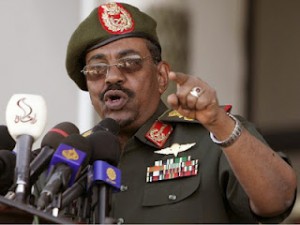One of the developments that compelled the international community to cut aid to Malawi was our decision to let Sudan president Hassan Omar al-Bashir dine with us when we were supposed to arrest him for crimes against humanity and other criminal offenses which the International Criminal Court (ICC) pressed against him about three years ago.
It seems rather strange that a country that relies heavily on aid defied the aid-givers and hosted the Sudanese president. Donors deemed Malawi as a country that has no respect for humanity by allowing the man who is alleged to have orchestrated the death of tens of thousands of innocent civilians to walk on its soil.

In essence, the ICC does not have its own military or police establishments, and it relies on its member states to arrest those it believes must be arrested. Malawi, being a member of the ICC, was asked to arrest al-Bashir if he dared come for the previous African Union (AU) summit which we hosted.
We neither barred al-Bashir from coming, nor did we arrest him. And now, we are faced with another tricky situation. It is a situation in which three strands of options seem to have cropped up. We either bar al-Bashir from stepping on our soil – which we have already started doing by asking the AU secretariat to ask Sudan to send a high-profile representative other than the president.
Or we should arrest the Sudanese president the moment he steps his feet here. We can go a step further by informing the AU secretariat that as a country, we will not be able to host the summit if our wish to bar al-Bashir hits a blank wall.
In fact, it has turned out that barring al-Bashir from coming to Malawi seems to be problematic. The Sudanese Ministry of Foreign Affairs is arguing that Malawi does not hold the right to stop any African head of state from attending the forthcoming summit, let alone al-Bashir. Of course, it is true that we do not have the right to bar al-Bashir from coming here, but we have the right to ask those that have the right to assist us.
The argument from the Sudanese Ministry of Foreign Affairs seems to imply that nothing can stop al-Bashir from coming to Malawi except his own desire. It therefore necessarily follows that even if the AU secretariat feels that Malawi is justified to ask that al-Bashir be stopped from attending the summit, the Sudanese leader will still come if he so desires.
However, there is likely to be a problem if the secretariat feels that al-Bashir is free to come to Malawi. In this regard, the last decision on what should be done will rest in our hands. But, can we afford to arrest the Sudanese leader?
A decision as this is hard to make. If we arrest him, that is likely to be the beginning of untold animosity between Malawi and Sudan and chaos would seem inevitable. Sudan has one of Africa’s strongest military establishments, and if they decide to wage physical war on Malawi, that might lead to the annihilation of this central African country’s population.
There even is another repercussion waiting for us if we do not arrest al-Bashir if he comes to Malawi. The aid taps that are gradually opening will obviously close again, and that might be forever. And, an economy that is already stumbling on its knees will finally be knocked to the ground. Rebuilding it would be a daunting task that would not be easily accomplished.
The dilemma we are in seems small, but it is likely to have adverse consequences on the progress of our country if we do not tread carefully. If the option of barring al-Bashir fails to work, the option of arresting him cannot be Malawi’s favourite. Yet, still, the option of not arresting him cannot even help us.
Perhaps, the last option we are left with is to cancel the summit altogether; to inform the AU secretariat that they should seek another country that should host it. The move may seem very ridiculous considering that we had enough time to carefully decide on whether or not we should host the summit, but it may be the only undertaking that can avert all possible repercussions.
Otherwise, here we are, wallowing in terrible economic crises. And there the donors are, promising to lift us from the deep abyss of difficulties from which, for the time being, we cannot afford to rescue ourselves; and the same donors will obviously turn their backs on us if we host al-Bashir. And there al-Bashir is, the leader it seems we can neither host nor arrest.